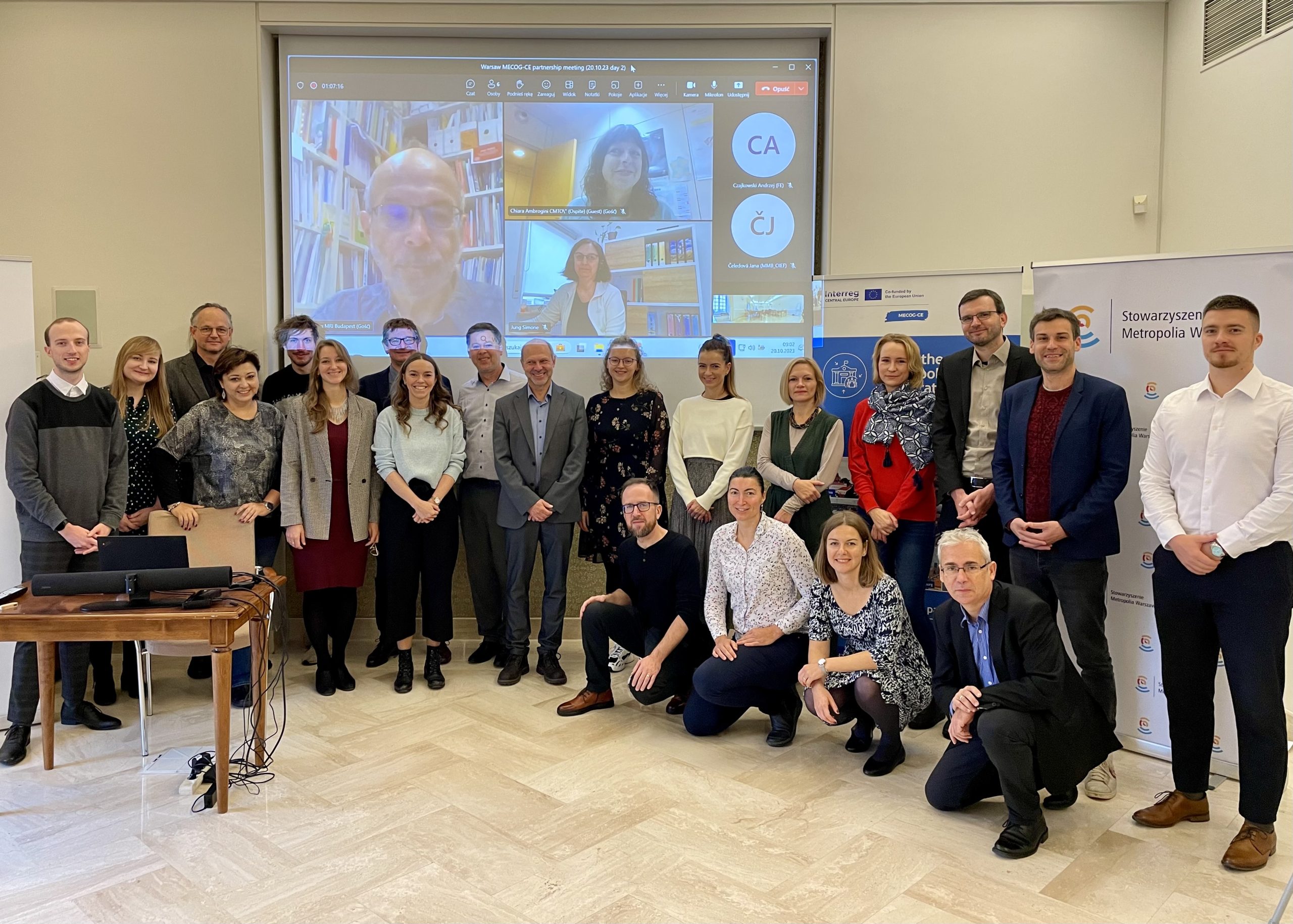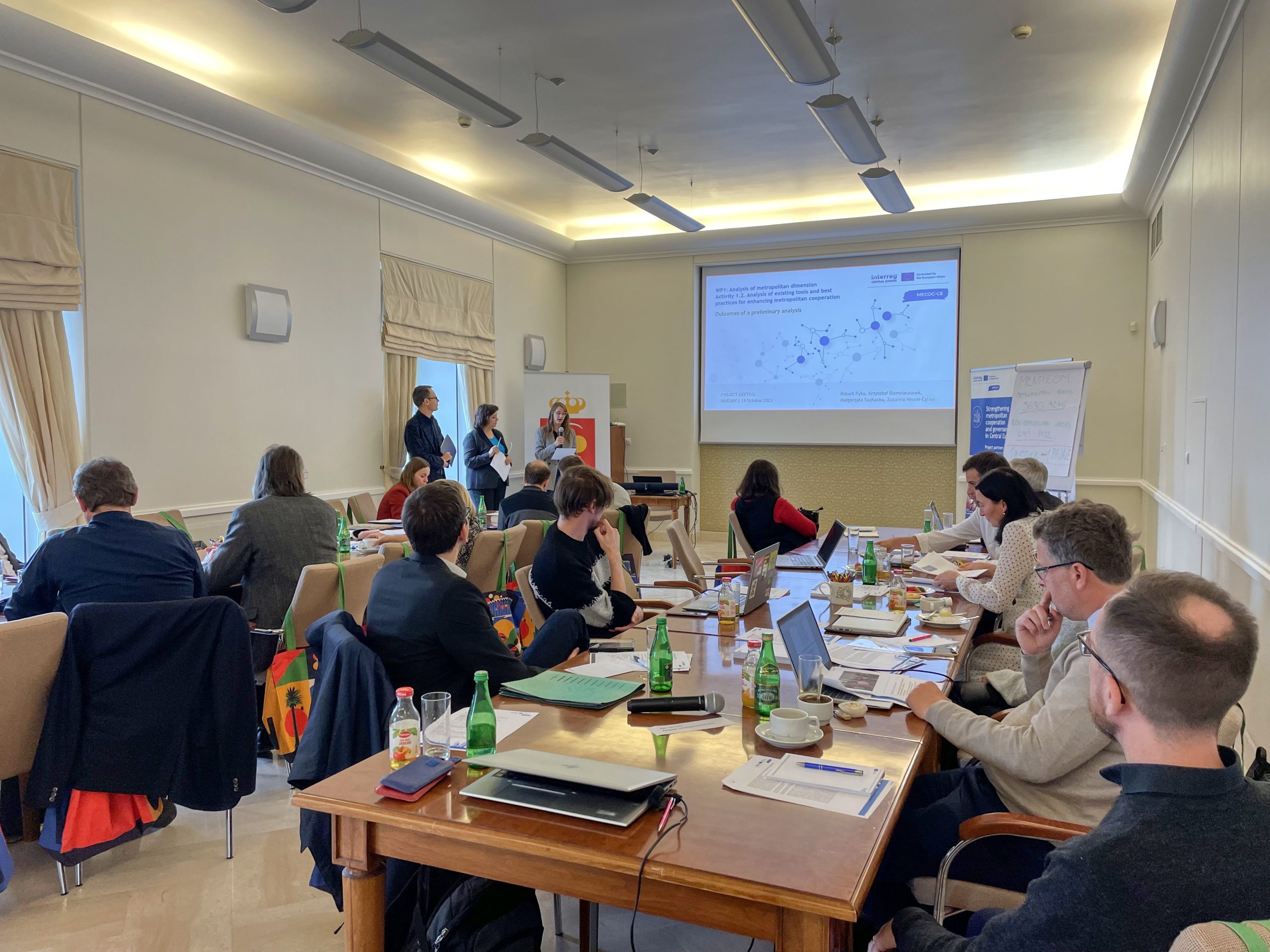The meeting commenced with an opening address of the Warsaw Deputy Mayor Michał Olszewski, who welcomed all participants.
Shared Challenges: A Common Vision for Central European Metropolitan Areas
Charles University, a project partner and co-leader of Work Package 1, introduced the first submitted deliverable which identified challenges specific for Central European metropolitan areas. Notable challenges include climate change, sustainable mobility, suburbanization, urban sprawl, population change and energy supply. Partners discussed the outcomes of this document in relation to the next parts of the project which is creation of Common Metropolitan Vision. The project consortium engaged in a productive discussion about the benefits and advantages of metropolitan cooperation and needs of metropolitan areas towards the strengthening of their positions at the national and EU level. Common Metropolitan Vision will serve as an advocacy document emphasizing the importance of metropolitan areas and metropolitan cooperation.
Identifying Best Practices for Stronger Metropolitan Cooperation in Central Europe
Subsequently, the University of Silesia in Katowice, also a project partner and co-leader of Work Package 1, provided an insightful summary of the analysis of best tools and practices for strengthening metropolitan cooperation and governance in partners’ metropolitan areas. Transport, education, spatial planning, regional development, and management of metropolitan areas emerged as the most common domains. This analysis served as a basis for next parts of the meeting.

During the workshop, each partner presented up to five best practices from its metropolitan area. In total 44 examples were identified and will serve as starting points for upcoming activities. These best tools and practices for example include different financial instruments for metropolitan areas development, integrated transport systems, riverbank use plan, food districts, strategic plans, several tools for enhancing the participation of different stakeholders within the area and others. These tools promote more effective cooperation in the metropolitan areas. The catalogue of all best tools and practices will be presented in April 2024.
Following a thorough discussion of the analysed best tools and practices, the ones with high potential of transferability in the development of joint actions and new solutions were shortlisted. After the Warsaw meeting, each partner will hold a meeting with their regional stakeholders to discuss these shortlisted best practices and tools and will select the ones which they prefer to study and implement in the further stages of the project (in association with pilot actions and new solutions).
What’s next? Heading towards the pilot actions and new solutions
The project meeting also marked the kick-off of the Work Package 2. The Lead partner City of Brno proposed the outline, agenda, and necessary steps of the second work package. The plan and table of content of its deliverables were introduced. Work package leader also presented a procedure of forming study clusters which will then develop joint actions and new solutions. Study clusters will be based on identified and selected best practices and tools.
The second transnational project meeting in Warsaw fostered collaboration and dialogue between the partners. This marks the important groundwork for achieving the goal of the project – strengthening the metropolitan cooperation and governance.

